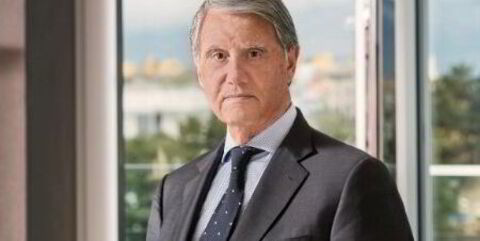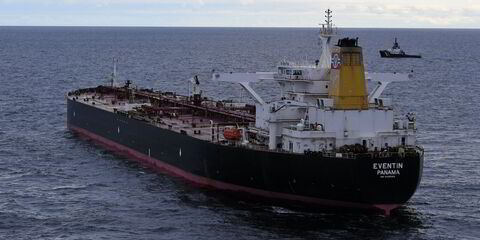Chief executive Ole Hjertaker tells TradeWinds the New York-listed shipowner took in approximately $88.8m after expenses following the sale of roughly six million shares.
Oslo and Hamilton, Bermuda-based SFI priced the units at $14.88, a figure that wasn’t made public when the prospectus was filed with securities regulators earlier this week.
The rate paid by the underwriter, which expects to receive the shares by tomorrow, is $0.44 lower than the level seen at Thursday’s close.
While the first option may come as a surprise as its one of the few mainstream sectors in which SFI and its affiliates aren’t active a growing number of equity researchers at firms like DNB Markets believe the car-carrier space is becoming increasingly attractive to shipowners.
In a recent report DNB's Oslo-based analysts, led by Nicolay Dyvik, said the first delivery slots for car carrier newbuildings at reputable yards in Japan and South Korea are in the first quarter of 2014, which means a gradual decline in quarterly supply growth is likely to continue until the end of 2013.
“Vessel speed has declined from 21 knots on average in 2008 to 17 knots today, reducing the fleet capacity by 15% from 2008 to 2012,” they added. “The impact on the supply/demand balance is emphasised with zero speed-adjusted fleet growth in 2011 compared to 8% nominal supply growth.
“The large operators have slowed down their speed and saved significant on lower bunker costs and we argue that utilisation will soon come to a level where the largest operators have to charter-in more expensive tonnage to avoid speeding up their own fleet squeezing margins.”
If ongoing antitrust investigations in Japan and North America lead to temporary freeze in new ordering due to uncertainty over the outcome of probes targeting the sector’s biggest names, DNB's analysts believe supply growth would be close to zero in 2014.(Copyright)



